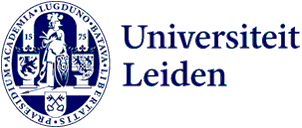
Programme innovation at Dutch Language and Culture
In 2018, the undergraduate programme Dutch Language and Culture embarked on sweeping programme innovations to educate its students ‘in a way that focusses more on the challenges of Dutch Studies in a 21st century society’. What does this entail and what was the approach? Esther Op de Beek, university lecturer of modern literature, talks about the how and what of this innovation project.
Three causes
‘We felt that the Dutch Language and Culture programme was no longer optimally suited to current times,' says Op de Beek. ‘There were three different causes. First of all, media has become increasingly important over the past decades. Because most courses already contained a media component, there was a desire to set up a media track in the bachelor's programme, so that the profile of the programme would not only better reflect what we do, but also better fit current issues. In evaluations and surveys, students also regularly expressed their desire for more labour market orientation. And finally, students wished for more room for an internship and to be able to choose their specialisation track earlier in the bachelor's programme.’
To meet the first and third wish, existing courses were revised, new courses were developed and the entire bachelor's programme was reconsidered. Some of the renewed courses are now part of the new media track. In the innovated programme, students can already follow specialisation courses from their chosen track in their second year. In this way, students can set up their studies to their own preference and there is more room to possibly do an internship.
Making the hidden curriculum visible
‘In order to improve preparation for the labour market, it seemed important to us not only to increase the supply, but also to ensure that the existing orientation moments were made visible and better utilised by students,' Op de Beek emphasises. That is why, with the help of colleagues and students, she decided to provide insight into what was already being done regarding this topic and where there was still room for improvement.
‘This was done via a number of steps,' Op de Beek explains. ’First, we made an inventory of the courses that include skills that prepare for working life, of starting points to improve this, and of courses in which we could possibly involve external partners or alumni. We then wanted to make this 'hidden curriculum' visible to students by making it explicit in the prospectus, during lectures and by offering them a complete, schematic overview. We also asked the lecturers to devote one week of lectures per semester to labour market orientation. This can be done as creatively as they want, for example by inviting a guest speaker and also asking them about their career, or by having students organise a symposium at an external location as a final assignment.’
Challenges
Now, the project is as good as finished and the bachelor's programme is running in its new form. The innovations are bearing their first fruit: the new media specialisation is in demand and students are positive about the innovations. Of course, such a large project also presents a number of challenges, Op de Beek explains: 'During the course of programme innovations you come across practical consequences that you might not have foreseen beforehand. It proved difficult, for example, to find a permanent digital location where the schematic overview of skills could be shared with students. And placing the elective moment at an earlier stage also meant that a number of our elective courses got way too full and that information about the specialisations had to take place at an earlier stage. A change therefore has consequences for various facets of the study programme. The challenge is to coordinate them during such a long-term project.’
Together
Looking back on the project, Op de Beek says that the programme innovations for Dutch Language and Culture were achieved together. For this project, student members of the Programme Board and the Programme Committee have helped with the inventory, students of study association NNP organise an annual labour market afternoon together with the study programme, and various student assistants have supported the innovation or development of courses. ‘For the lecturers the innovations were also a useful opportunity to get together, among themselves, to exchange ideas about courses and to draw up a joint plan,’ says Op de Beek. In this way, the project reached everyone in the study programme and brought students, lecturers and alumni together in new ways in the innovated, 21st century Dutch Language and Culture study programme.

In the past two years, more than thirty educational innovation projects have been set up and implemented by lecturers at the Faculty of Humanities. In this series, they talk about their experiences.
